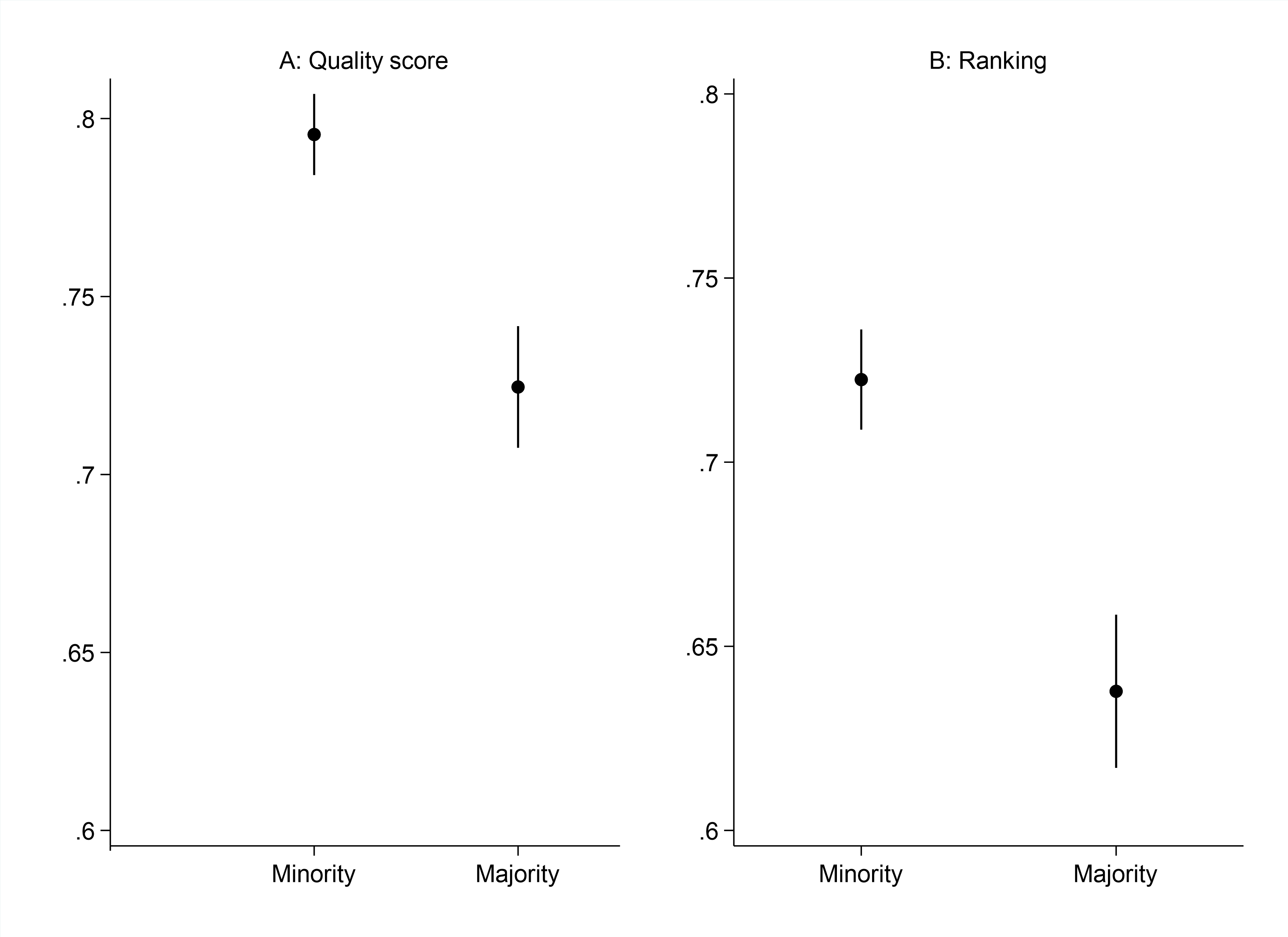The importance of representation in politics
Ethnic minorities are underrepresented in parliaments worldwide. A lack of representation can lead to the suppression of policy perspectives that are important for segments of the electorate. This can result in political alienation among minority groups, and can serve as a barrier to implementing policy reforms targeted to benefit immigrant groups. To have the possibility to be elected to a legislature, a candidate must, in many political systems, first be listed on a party ballot. However, ethnic minorities tend to be underrepresented on party ballots as well.
Possible explanations of why ethnic minorities are underrepresented
One possible explanation of the underrepresentation is that ethnic minorities are less able or willing to be listed on party ballots, due to limited resources or lower political interest. Another possible explanation, which is highlighted in recent research in political science, is bias against minority candidates among party gatekeepers. Although the question of political underrepresentation has interested researchers for decades, no prior experimental study has investigated the topic of ethnic bias among party gatekeepers in party-controlled nomination processes.
Experiments to investigate ethnic bias against minority candidates
In a recently published paper in the Journal of Politics, we study the question of ethnic bias in political nominations by conducting a survey experiment among more than 1000 politicians in Norway, a country where parties control the candidate nomination process. In the experiment, politicians evaluated profiles of hypothetical candidates to potentially be put on the party ballot. To measure ethnic bias, we compared the ratings of profiles who were randomly assigned information about the candidates’ ethnic backgrounds using either a typical Norwegian or a Pakistani/Somali name (representing two of the major ethnic minority groups in Norway). Based on theories of ethnic stereotypes and discrimination, we hypothesized in a pre-registration plan that party gatekeepers would be less likely to approve ethnic minority candidates to be listed on the party ballot.
Contrary to our expectation, we find that politicians give ethnic minority candidates higher quality scores and proposed rankings on the party ballot compared to majority candidates. This result does not appear to be driven by strategic considerations and we find no difference between left-wing and right-wing politicians. Instead, we find suggestive evidence pointing to normative and psychological factors at the individual level; politicians who express a strong motivation to appear anti-prejudiced give higher quality scores and rankings to ethnic minority candidates compared to ethnic majority candidates.
In addition to investigating ethnic bias among politicians, we wanted to explore whether the views of politicians aligned with ethnic bias in the electorate. To do this, we conducted a complementary list experiment among voters. Voters were given a number of characteristics of a party list and asked to report the number of characteristics that would make them less likely to vote for the party. The respondents were randomized into a control or treatment group. The treatment group was given one additional characteristic: “a list with many candidates with ethnic minority backgrounds”.
Interestingly, the results of the list experiment suggest that a sizable portion of the electorate – those voting for right-wing parties – have reservations against voting for a party list with many ethnic minority political candidates.
What have we learned about ethnic bias and underrepresentation?
Our results do not support that bias among party-gatekeepers is the main reason why ethnic minorities are underrepresented on party ballots. The pro-minority bias we find, however, does not rule out the role of other party-gatekeeper effects. For instance, social segregation could imply that minorities have less access to party networks. Moreover, the list experiments among voters reveal that a sizeable portion of the electorate—those voting for right-wing parties—appears to have reservations against voting for a party list with many ethnic minority candidates. This suggests that if politicians representing these parties sense this discomfort among their voters, they might be reluctant to promote more diverse party lists, even when this is their preference. In any case, the results suggest that ethnic bias among voters is a more important problem to address than bias among party elites in closing the ethnic gap in political representation.
Notes
Figure 1: Average treatment effects in the survey experiment with politicians. Dots refer to point estimates and lines refer to 95% confidence intervals.
This blog piece is based on the forthcoming Journal of Politics article “Are Politicians Biased Against Ethnic Minority Candidates? Experimental Evidence from Norway” by Magnus Carlsson, Henning Finseraas, and Arnfinn H. Midtbøen
The empirical analysis has been successfully replicated by the JOP and the replication files are available in the JOP Dataverse.
About the Authors
Magnus Carlsson is Associate Professor of Economics at Linnaeus University in Sweden. His research interests include labor economics, applied microeconomics, and political economy. A large part of his research aims at studying which factors are important in explaining observed differences in labor market outcomes, for example between women and men and individuals with different ethnic backgrounds.
Henning Finseraas is Professor of Political Science at the Norwegian University of Science and Technology. His research interests include the politics of immigration, the social and political integration of immigrants, and election studies. You can find more information on his research on his website: https://www.ntnu.edu/employees/henning.finseraas
Arnfinn H. Midtbøen is Professor of Sociology at the University of Oslo. His research centers on immigration, integration and ethnic inequality, including topics such as employment discrimination, citizenship policies, and long-term incorporation processes among descendants of migrants. For more information, visit his website.


